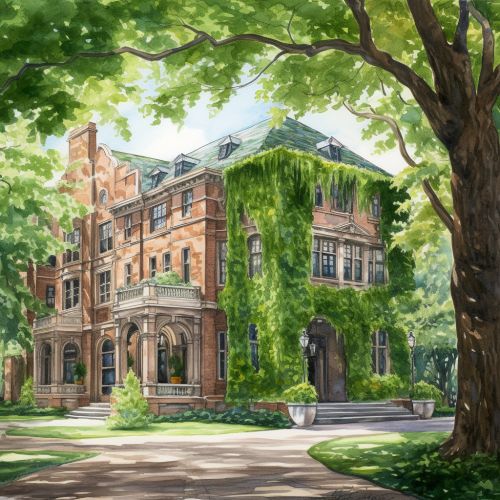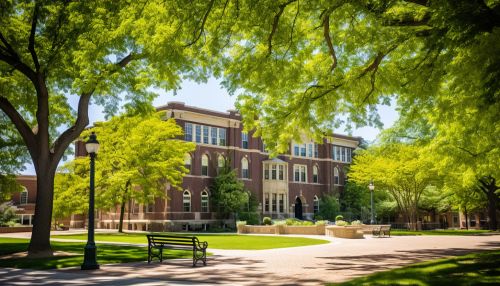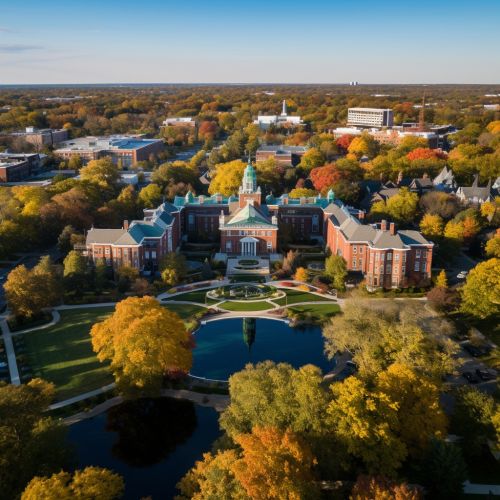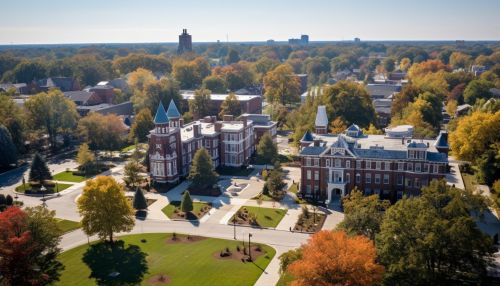University of Delaware
History
The University of Delaware (UD) traces its origins back to a "Free School" established in New London, Pennsylvania, in 1743. The school was relocated to Newark, Delaware, in 1765 and renamed the "Academy of Newark". The academy was chartered by the Delaware General Assembly as "Newark College" in 1833, and it was granted university status by the Delaware General Assembly in 1833, making it one of the oldest universities in the United States.


The university has undergone several name changes throughout its history. In 1843, it was renamed "Delaware College", and in 1921, it became the "University of Delaware". The university has grown significantly over the years, with its enrollment increasing from just 10 students in 1834 to over 24,000 students today.
Academics
The University of Delaware offers a wide range of academic programs. It comprises seven colleges: the College of Agriculture and Natural Resources, the College of Arts and Sciences, the Alfred Lerner College of Business and Economics, the College of Earth, Ocean, and Environment, the College of Education and Human Development, the College of Engineering, and the College of Health Sciences. Each college offers a variety of undergraduate and graduate programs.
The university is classified as a research university with very high research activity by the Carnegie Classification of Institutions of Higher Education. It is known for its strong programs in chemical engineering, physical therapy, marine science, and history. The university also offers a number of interdisciplinary programs, such as the Honors Program, which provides an enriched academic experience for high-achieving students.
Campus
The University of Delaware's main campus is located in Newark, Delaware, a small college town located in the northeastern part of the state. The campus covers over 2,000 acres and features a mix of historic and modern buildings. The campus is divided into several areas, including the Central Campus, the North Campus, the South Campus, and the West Campus.


The university also operates several satellite campuses, including the Hugh R. Sharp Campus in Lewes, Delaware, which is home to the College of Earth, Ocean, and Environment, and the Delaware Biotechnology Institute in Newark.
Student Life
Student life at the University of Delaware is vibrant and diverse. The university offers over 300 student organizations, including academic clubs, service organizations, cultural groups, and Greek life. The university also has a strong athletics program, with its teams, known as the Blue Hens, competing in the NCAA Division I Colonial Athletic Association.
The university also offers a variety of housing options for students, including traditional residence halls, suite-style housing, and apartment-style living. Dining options on campus include a variety of dining halls, cafes, and food trucks.
Research
Research is a key component of the University of Delaware's mission. The university is home to a number of research centers and institutes, including the Delaware Biotechnology Institute, the Center for Composite Materials, the Delaware Environmental Institute, and the Institute for Financial Services Analytics.
The university's faculty and students are involved in a wide range of research projects, from studying climate change and sea level rise to developing new materials and technologies. The university is also a leader in the field of biotechnology, with its researchers making significant contributions to areas such as drug discovery, bioinformatics, and genetic engineering.
Notable Alumni
The University of Delaware has produced a number of notable alumni over the years. These include Joe Biden, the 46th President of the United States and former Vice President, who graduated with a Bachelor of Arts in History and Political Science in 1965. Other notable alumni include Chris Christie, former Governor of New Jersey; Jill Biden, First Lady of the United States; and Robert Gore, the inventor of Gore-Tex.
